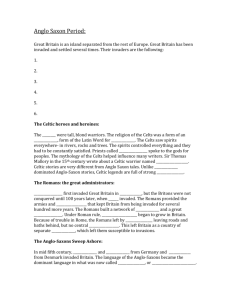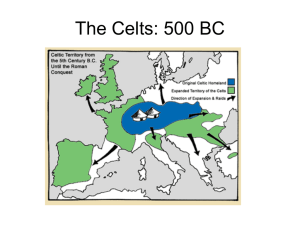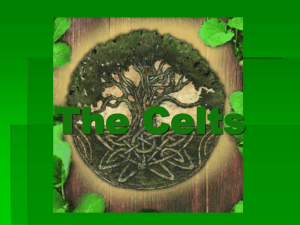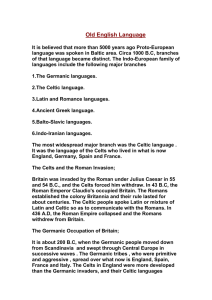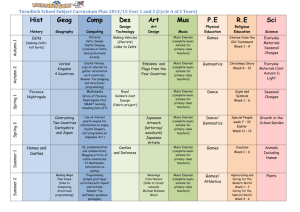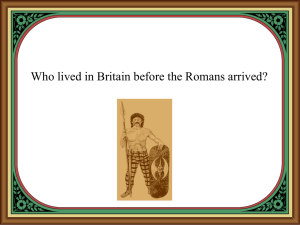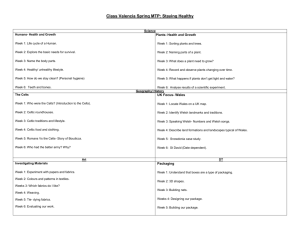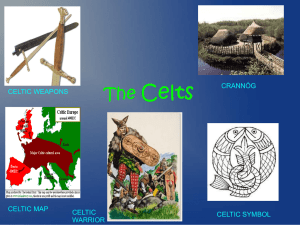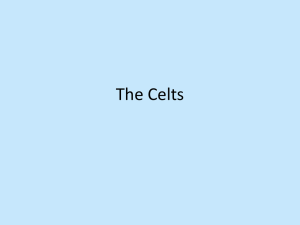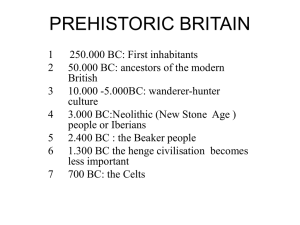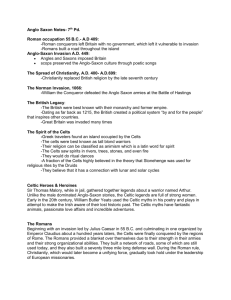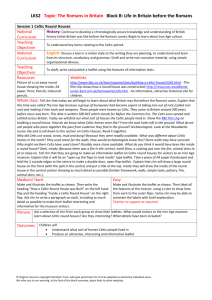Celtic Culture in Britain
advertisement
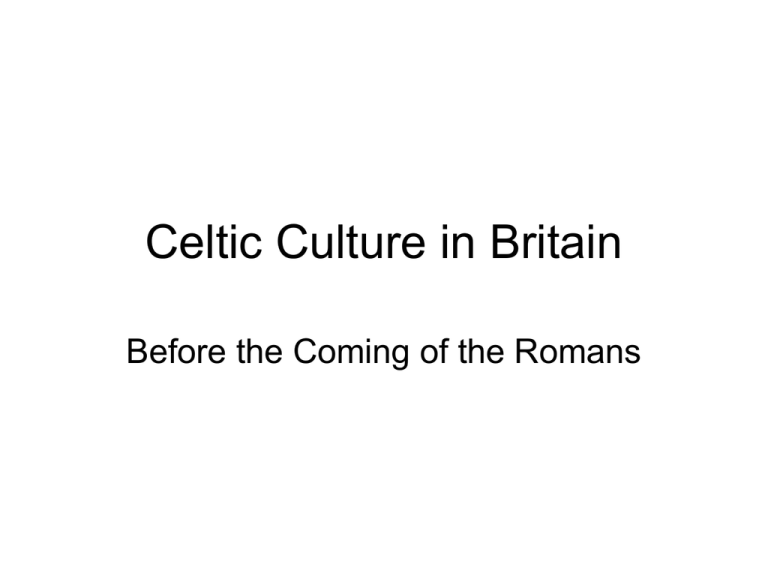
Celtic Culture in Britain Before the Coming of the Romans Celtic Tribes in Britain and Ireland Before the Romans, there were no cities in Britain. The Celts lived in small agricultural villages. An extended family lived in a dark and smoke-filled “Round House,” made of mud and branches, called wattle and daub. For defensive purposes, the Celtic village was sometimes made part of a hill fort. Remains of these Hill Forts can still be seen in Britain today. Most of the time, the Celts were involved in quiet agricultural life, raising their crops and tending their cattle. However, there was always the constant danger of warfare with another tribe. Therefore, Celtic men were trained as warriors. Their basic weapons were the shield and the long sword They also had cavalry, who could carry multiple spears. But, they were best known for their skill with the chariot. The Celtic tribes were led by chieftains, but the most powerful class of people were priests known as the Druids. The Druids preserved the ancient traditions of the tribe. They administered the law, and they conducted various rituals, often held in sacred groves of oak trees. The Celts sometimes resorted to human sacrifice, in order to insure a good harvest or to ward off danger from the tribe. We have discovered remains of sacrificed “bog men”. Another form of human sacrifice involved burning a victim in a “wicker man.” The Celts had a variety of gods and goddesses, usually associated with aspects of nature. For instance, the god of the forest was the horned god Cernunnos. There was a horse goddess called Epona. And there was a god of crafts and skill, known as Lugh. He is often pictured shining like the sun. The Celts were known for their complicated forms of design, used especially for decoration of jewelry. Celts wore brooches to pin their clothing and often wore a torc around their necks. The Celts were happy in their island home. But, everything was about to change with the coming of the Romans.
